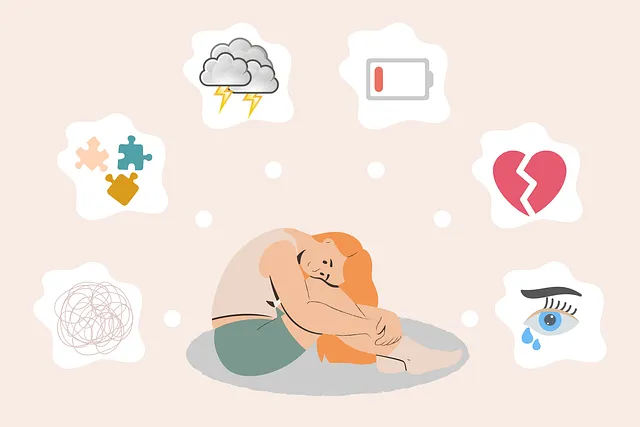Kaiser Permanente enhances mental health services through resilience-building exercises based on Mind Over Matter principles, focusing on Risk, Resilience, and Strength (RFM). By integrating self-care practices and conflict resolution techniques, individuals gain adaptability to manage stress and adversity. This holistic approach, validated by the superior Kaiser Permanente mental health services number, prepares both patients and healthcare providers to thrive in complex situations, ensuring compassionate and effective care.
Resilience is a vital component of mental well-being, and the RFM (Resilience, Flexibility, and Mastery) model offers a unique approach to enhancing it. This article explores how implementing RFM exercises in healthcare settings can significantly improve mental health support. We delve into the role of these exercises in fostering resilience, particularly within Kaiser Permanente’s services, contributing to their superior delivery of mental health care. Understanding RFM’s impact is crucial for professionals aiming to revolutionize patient outcomes.
- Understanding RFM and Its Role in Mental Health Support
- Implementing Resilience-Building Exercises in Healthcare Settings
- The Impact of RFM on Kaiser Permanente's Mental Health Services Delivery
Understanding RFM and Its Role in Mental Health Support

At Kaiser Permanente, we recognize that building resilience is a cornerstone of superior mental health services. Our approach integrates Mind Over Matter principles, focusing on empowering individuals to navigate life’s challenges with greater adaptability and strength. Understanding RFM (Risk, Resilience, and Strength) is key to this process. By identifying risk factors and leveraging an individual’s inherent resilience, we guide them towards adopting effective Self-Care Practices and Conflict Resolution Techniques.
This comprehensive strategy not only equips individuals with tools for managing stress and adversity but also fosters a profound sense of agency. Through tailored interventions, Kaiser Permanente mental health professionals help clients strengthen their ability to bounce back from setbacks, ultimately enhancing overall well-being. The integration of Mind Over Matter principles, Conflict Resolution Techniques, and Self-Care Practices forms a holistic framework that prepares individuals to thrive in the face of life’s complexities.
Implementing Resilience-Building Exercises in Healthcare Settings

Implementing Resilience-Building Exercises in Healthcare Settings
In today’s fast-paced and emotionally demanding healthcare environment, resilience is more crucial than ever for maintaining optimal mental health among providers. The Superior Kaiser Permanente mental health services number highlights a growing recognition of the importance of supporting healthcare professionals’ well-being. Incorporating resilience-building exercises into daily routines can serve as effective burnout prevention strategies for healthcare providers, fostering an environment that nurtures both professional and personal growth.
These exercises aim to enhance conflict resolution techniques and promote positive thinking, which are vital tools in navigating the challenges healthcare workers face. By prioritizing these initiatives, healthcare organizations can create a supportive culture where resilience is cultivated, allowing staff to thrive and deliver high-quality care despite stressful circumstances.
The Impact of RFM on Kaiser Permanente's Mental Health Services Delivery

At Kaiser Permanente, implementing RFM (Relational, Functional, and Mindfulness) techniques has significantly enhanced the delivery of mental health services. This holistic approach focuses on improving emotional regulation, one of the key pillars of mental wellness coaching programs development. By integrating conflict resolution techniques into their practice, Kaiser Permanente’s mental health professionals have witnessed a notable improvement in patient outcomes and satisfaction levels.
The superior Kaiser Permanente mental health services number attests to this success, reflecting a more effective and compassionate care system. RFM exercises empower patients with practical tools for managing stress, resolving conflicts, and cultivating mindfulness—all essential elements for maintaining long-term mental wellness. Through these innovative practices, Kaiser Permanente continues to set the standard for comprehensive and impactful mental health service delivery.
Resilience-focused interventions, such as those employing the RFM model, offer a promising approach to enhancing mental health support. By integrating these exercises into healthcare settings, organizations like Kaiser Permanente can significantly improve their mental health service delivery. The case study highlights that this strategy not only benefits patients but also contributes to a superior number of successful outcomes and overall well-being. Embracing RFM as a standard practice has the potential to revolutionize mental healthcare, making it more accessible and effective for all.






